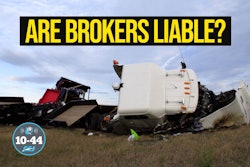Chances are, times haven’t been this good for your operation in many years. Trucking capacity is tight, freight is strong, and carriers generally have leverage in their customer relationships. Even some of the industry’s darkest clouds – a shortage of drivers, near-record diesel prices and a tough insurance market – sport silver linings. They stand as barriers to entry, helping to keep capacity in check and making it easier for carriers to maintain disciplined pricing.
Trucking executives who felt abused on pricing and productivity by their customers year after year must be tempted to gloat and turn the tables. After all, if you believe your shippers are taking advantage of you when you are down, why shouldn’t you reciprocate when you are in the driver’s seat? You may get some brief personal gratification, but long term, “turnabout’s fair play” probably isn’t your best strategy.
Nevertheless, some carriers are using the current climate to take full advantage of their customers. In fact, a panel of shippers at last month’s Randall Trucking Symposium in Tuscaloosa, Ala., complained of carriers disregarding contracts and demanding unreasonable rates.
“Price gouging is going on carte blanche,” said Jerry Ulm, president and CEO of RHC Logistics Corp., the distribution arm of industrial flooring manufacturer Roppe Holding Co. “Don’t think we don’t have long memories,” Ulm told trucking executives at the Symposium, which is presented annually by Commercial Carrier Journal.
RHC Logistics uses for-hire capacity, but it also operates a 100-tractor private fleet. Ulm warned that carriers are pushing shippers into expanding and becoming more creative and collaborative with their private fleets. “Where we’re going as an industry should scare you to death,” Ulm told the mostly for-hire executives at the Symposium.
Wayne Johnson, director of logistics for American Gypsum, warned that competition from railroads may be a more serious threat than trucking companies believe. Rail pricing and profits are up, and railroads are in a good position to upgrade equipment and service.
If threats of competition from railroads and private fleets don’t scare you, there are other reasons to avoid an openly aggressive stance. The shifting capacity and demand situation has created opportunities that you may be able to take advantage of if you play your cards right.
Schneider National’s turn-down rate on loads so far this year is three times what it was the same time last year, Bill Matheson, vice president and general manager, truckload services for the carrier, told the Symposium. Assuming that’s an industrywide trend, you should have the chance to serve shippers you haven’t worked with in the past. Handle it well, and you may land some good new customers.
“There are alignments [among shippers and carriers] taking place,” said James O’Neal, president of O&S Trucking. “Either you will be a part of the process, or you will be left picking up the leftovers.” But while trucking companies have no choice but to demand a premium for their scarce capacity, they need to look ahead and avoid burning bridges, says O’Neal, who chairs the Truckload Carriers Association’s Carrier/Shipper Relations Committee. “There is an ethical and responsible way to back out of freight we have committed to.”
“Carriers behaving badly will create a situation where shippers will have long memories,” Matheson said. Johnson agrees. “If you take advantage of us, we’ll remember that. However, if you do the right thing, we’ll do right by you.”
Your customers are probably saying the same thing. Unless past experience has proven otherwise, it may be in your best interest to believe them.







